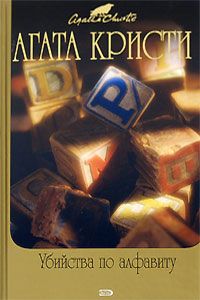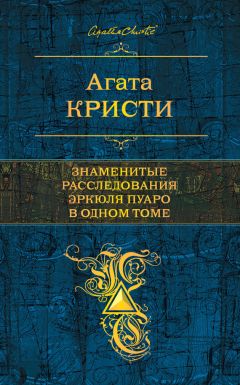Agatha Christie - Английский язык с Агатой Кристи. Убийства по алфавиту
It was certainly not a face (это, конечно, не было лицо) that you could call beautiful (которое вы могли бы назвать красивым), but it had an obvious and cheap prettiness (но оно имело явную и дешевую привлекательность).
Poirot handed it back (Пуаро протянул его назад), saying (говоря): "You and she do not resemble each other, mademoiselle (вы и она не похожи друг на друга, мадемуазель)."
perm [pǝ:m], frizzy [ˈfrɪzɪ], resemble [rɪˈzembl]
Megan slipped off the table, went to her suitcase, snapped it open and extracted something which she handed to Poirot.
In a leather frame was a head and shoulders of a fair-haired, smiling girl. Her hair had evidently recently been permed; it stood out from her head in mass of rather frizzy curls. The smile was arch and artificial.
It was certainly not a face that you could call beautiful, but it had an obvious and cheap prettiness.
Poirot handed it back, saying: "You and she do not resemble each other, mademoiselle."
"Oh, I'm the plain one of the family (о, я в семье дурнушка: «я некрасивая из семьи»). I've always known that (я всегда знала это)." She seemed to brush aside the fact as unimportant (она, казалось, отмела этот факт, как незначительный; important — важный).
"So, in what way exactly do you consider (так, каким точно образом вы считаете) your sister was behaving foolishly (что ваша сестра вела себя глупо)? Do you mean, perhaps (вы, вероятно, имеете в виду), in relation to Mr. Donald Fraser (в отношениях с мистером Дональдом Фрейзером)?"
"That's it (именно так), exactly (точно). Don's a very quiet sort of person (Дон очень тихий человек: «Дон очень тихий тип человека») — but he (но он) — well, naturally he'd resent certain things (ну, он, естественно, возмущается некоторым вещам) — and then (и потом) —"
"And then what, mademoiselle (и что потом, мадемуазель)?"
His eyes were on her very steadily (его глаза неотрывно смотрели на нее: «его глаза были на ней твердо»; steady — устойчивый; твердый).
plain [pleɪn], resent [rɪˈzent], steadily [ˈstedɪlɪ]
"Oh, I'm the plain one of the family. I've always known that." She seemed to brush aside the fact as unimportant.
"So, in what way exactly do you consider your sister was behaving foolishly? Do you mean, perhaps, in relation to Mr. Donald Fraser?"
"That's it, exactly. Don's a very quiet sort of person — but he — well, naturally he'd resent certain things — and then —"
"And then what, mademoiselle?"
His eyes were on her very steadily.
It may have been my fancy (это, возможно, было мое воображение) but it seemed to me (но мне показалось) that she hesitated a second before answering (что она колебалась секунду перед /тем, как/ ответить).
"I afraid that he might (я боялась, что он, вероятно) — chuck her altogether (бросит ее совсем; to chuck — бросить; кинуть; швырнуть). And that would have been a pity (и это была бы жалость). He's a very steady (он очень надежный) and hard-working man (и трудолюбивый мужчина) and would have made her a good husband (и мог бы сделаться ей хорошим мужем)."
Poirot continued to gaze at her (Пуаро продолжал /пристально/ смотреть на нее). She did not flush under his glance (она не вспыхнула под его взглядом) but returned it with one of her own equally steady (но вернула его с собственным равным упорством) and with something else in it (и с чем-то еще в нем), something that reminded me of her first defiant (что напомнило мне о ее изначальной непокорной; to defy — бросать вызов), disdainful manner (высокомерной манере; disdain — презрение, пренебрежение).
"So it is like that," he said at last (вот оно как, — сказал он наконец). "We do not speak the truth any longer (мы больше не говорим правду)."
fancy [ˈfænsɪ], defiant [dɪˈfaɪǝnt], disdainful [dɪsˈdeɪnfʋl]
It may have been my fancy but it seemed to me that she hesitated a second before answering.
"I afraid that he might — chuck her altogether. And that would have been a pity. He's a very steady and hard-working man and would have made her a good husband."
Poirot continued to gaze at her. She did not flush under his glance but returned it with one of her own equally steady and with something else in it, something that reminded me of her first defiant, disdainful manner.
"So it is like that," he said at last. "We do not speak the truth any longer."
She shrugged her shoulders (она пожала плечами) and turned towards the door (и повернулась к двери). "Well," she said, "I've done what I could to help you (я сделала /все/, что я могла, чтобы помочь вам)."
Poirot's voice arrested her (голос Пуаро задержал ее). "Wait, mademoiselle (подождите, мадемуазель). I have something to tell you (у меня есть, что вам сказать). Come back (вернитесь)."
Rather, unwillingly (несколько неохотно; will — воля; желание), I thought (/как/ я подумал), she obeyed (она послушалась; to obey — подчиняться).
Somewhat to my surprise (отчасти к моему удивлению) Poirot plunged into the whole story of the matters (Пуаро погрузился в целую историю дел), the murder at Andover (убийство в Эндовере), and the railway guide found by the bodies (и железнодорожный справочник, найденный у тел).
He had no reason to complain of any lack of interest on her part (у него не было оснований жаловаться на отсутствие интереса с ее стороны). Her lips parted (ее губы раздвинулись), her eyes gleaming (ее глаза горели), she hung on his words (она жадно ловила его слова; to hang — висеть; to hang on — жадно ловить).
unwillingly [ʌnˈwɪlɪŋlɪ], plunge [plʌnʤ], hung [hʌŋ]
She shrugged her shoulders and turned towards the door. "Well," she said, "I've done what I could to help you."
Poirot's voice arrested her. "Wait, mademoiselle. I have something to tell you. Come back."
Rather, unwillingly, I thought, she obeyed.
Somewhat to my surprise Poirot plunged into the whole story of the matters, the murder at Andover, and the railway guide found by the bodies.
He had no reason to complain of any lack of interest on her part. Her lips parted, her eyes gleaming, she hung on his words.
"Is this all true, M. Poirot (это все правда, мсье Пуаро)?"
"Yes, it is true (это правда)."
"You really mean (вы действительно имеете в виду) my sister was killed by some horrible homicidal maniac (что моя сестра была убита каким-то ужасным маньяком-убийцей)?"
"Precisely (именно; precise — точный)."
She drew a deep breath (она глубоко вздохнула: «втянула глубокий вздох»). "Oh! Betty (Бетти) — Betty — How (как) — how ghastly (как ужасно)!"
"You see, mademoiselle (вы понимаете, мадемуазель), that the information (что информацию) for which I ask you (которую я прошу) you can give freely (вы можете дать свободно) without wondering whether or not it will hurt anyone (не опасаясь, повредит она кому или нет)."
"Yes, I see that now (да, теперь я это понимаю)."
ghastly [ˈɡɑ:stlɪ], precisely [prɪˈsaɪslɪ], hurt [hǝ:t]
"Is this all true, M. Poirot?"
"Yes, it is true."
"You really mean my sister was killed by some horrible homicidal maniac?"
"Precisely."
She drew a deep breath. "Oh! Betty — Betty — How — how ghastly!"
"You see, mademoiselle, that the information for which I ask you you can give freely without wondering whether or not it will hurt anyone."
"Yes, I see that now."
"Then let us continue our conversation (тогда давайте продолжим наш разговор). I have formed the idea (у меня сложилось представление) that this Donald Fraser has (что этот Дональд Фрейзер имел), perhaps (возможно), a violent and jealous temper (жестокий и ревнивый нрав), is that right (это верно)?"




